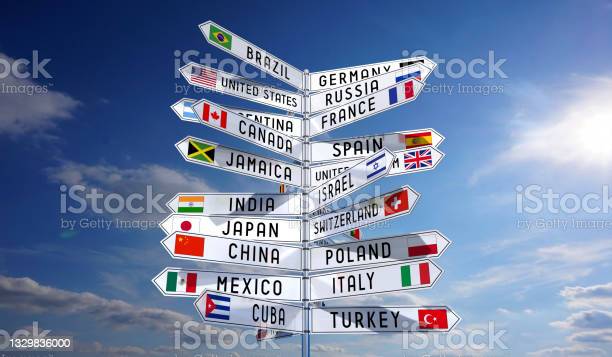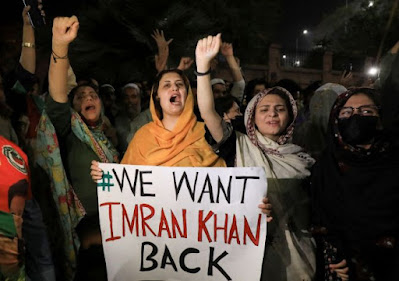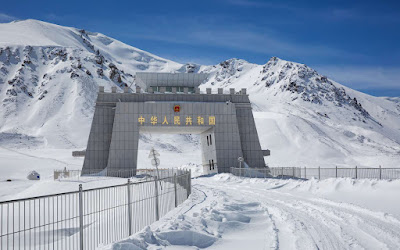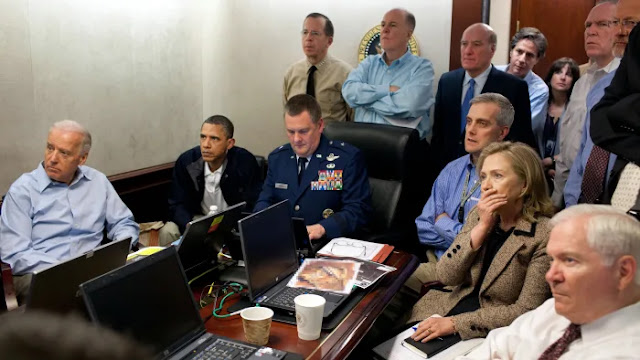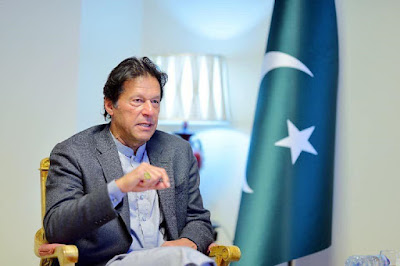Discover the threat of extremism in the global landscape as China and America compete for control. Explore the financial authority tactics of China through debt and America’s power play through warfare. Realize the impact on nations like Pakistan and the exploitation of weak economies. Find out why harmony and respect are crucial for global peace.
Introduction
In today’s global landscape, interest-based financial systems and economies, coupled with single-party ruling systems, pose a significant threat to democracy and the independence of the rest of the world. China, with its extensive lending practices, and America, through its engagement in wars, both strive to control global resources and assert dominance. This article explores how these attitudes represent extremism and the need for harmony, respect, and the recognition of the rights of other nations for the sake of global peace and prosperity.
*Read about a conflict between China and America emerging in space under the article Economic Opportunities of the Space Program
The China Factor: Financial Control through Debt
China has gained influence by lending to underdeveloped nations, presenting itself as a reliable partner for economic growth. However, instances like Sri Lanka’s seaport takeover during the COVID-19 lockdown have revealed the ulterior motives behind China’s financial aid. When the borrower failed to repay the debt, China seized the strategic port, raising concerns about China’s exploitative practices. It highlights the danger of a single-party ruling system manipulating financial independence through expensive debts, endangering the sovereignty of nations.
America’s Power Play: Control through Warfare
While China utilizes its economic effectiveness, America’s approach to controlling other nations lies in confronting them in wars. America maintains its dominance and influence over global affairs by involving weaker economies in conflicts. However, this strategy also sabotages democracy and the right of nations to self-govern. Such tactics perpetuate instability, hampering the growth and independence of affected countries.
World Order is Changing: Ray Dalio Warns about the Big Cycle
Srilanka Port under China’s Control
Hambantota port, located on Sri Lanka’s southern coast along major shipping routes in the Indian Ocean, was built with over $1 billion from China. However, Sri Lanka could not repay the loans, leading to the port being handed over to a Chinese company on a 99-year lease in 2017. Additionally, China is constructing a second seaport in Colombo, the capital, as part of its global expansion strategy known as the Belt and Road Initiative. These developments have raised concerns, particularly from India, as China has become Sri Lanka’s largest foreign debt provider and has financed various infrastructure projects in Srilanka.
CPEC: Debt Exhausting Pakistan’s Economy
A notable example of China’s debt trap diplomacy is the China-Pakistan Economic Corridor (CPEC). Initially presented as a project to enhance trade relations between China and Pakistan, CPEC has left Pakistan with high indebtedness. The terms of the loans and the subsequent economic burdens have raised concerns about China’s intentions and the long-term implications for Pakistan’s economic sovereignty.
Exploitation of Weak Economies
China and America both exhibit extremist attitudes in their pursuit of becoming the sole superpower. America’s practice of threatening weak economies like Pakistan to gain control over democratic governments is a clear display of power dynamics. These actions undermine the principles of fairness, mutual respect, and international cooperation necessary for a harmonious global community.
Read in detail PDM’s Role in Illegal Regime Change in Pakistan with the Help of America
A Tug of War for Global Supremacy
China and America’s struggle for dominance reflects a lack of understanding and respect for the rights of other nations. Both countries must recognize that controlling the entire world is neither feasible nor justifiable. The concept of global peace necessitates that all nations have the right to grow and flourish without exploitation or undue influence.
The Importance of Harmony and Respect
China and America must prioritize harmony and respect to achieve global peace and stability. Instead of pursuing extremist tactics, they should engage in constructive dialogue, uphold democratic principles, and foster mutually beneficial relationships. Collaboration and cooperation among nations can create a world where each country’s sovereignty and interests are safeguarded.
Conclusion
The rise of interest-based financial systems coupled with single-party ruling systems presents a significant threat to democracy and global independence. China’s debt-trap diplomacy and America’s engagement in wars both are clear manifestations of extremism and a struggle for control. To ensure global peace and prosperity, China and America must embrace harmony, respect, and the rights of other nations. We can build a world that thrives on mutual understanding and shared prosperity only through a balanced approach and sincere cooperation.
FAQs
1. Are China and America the only countries engaging in such practices? No. China and America are prominent examples due to their global influence, but other countries may also exhibit similar behaviour. The focus here is on the impact of these two nations on global dynamics.
2. How can other countries protect themselves from exploitation? Other countries should prioritize transparency, due diligence, and negotiation when entering financial agreements or international partnerships. They should also diversify their economic and diplomatic relationships to avoid dependence on a single country.
3. Is there any hope for improved relations between China and America? While the competition for global supremacy is intense, there is always room for diplomatic resolutions and improved relations. Dialogue, cooperation, and mutual respect are essential for bridging differences and establishing a harmonious global order.
4. Can international organizations play a role in curbing extremism? Yes, international organizations can facilitate dialogue, promote cooperation, and establish frameworks to address issues related to extremism and power imbalances. Collaborative efforts are crucial to reduce the negative consequences of extremism on a global scale.
5. How can individuals contribute to global peace and harmony? Individuals can promote understanding, tolerance, and respect across cultures and nations. Individuals can play their part in fostering a more inclusive and harmonious world by advocating for fairness, human rights, and peaceful resolutions.

